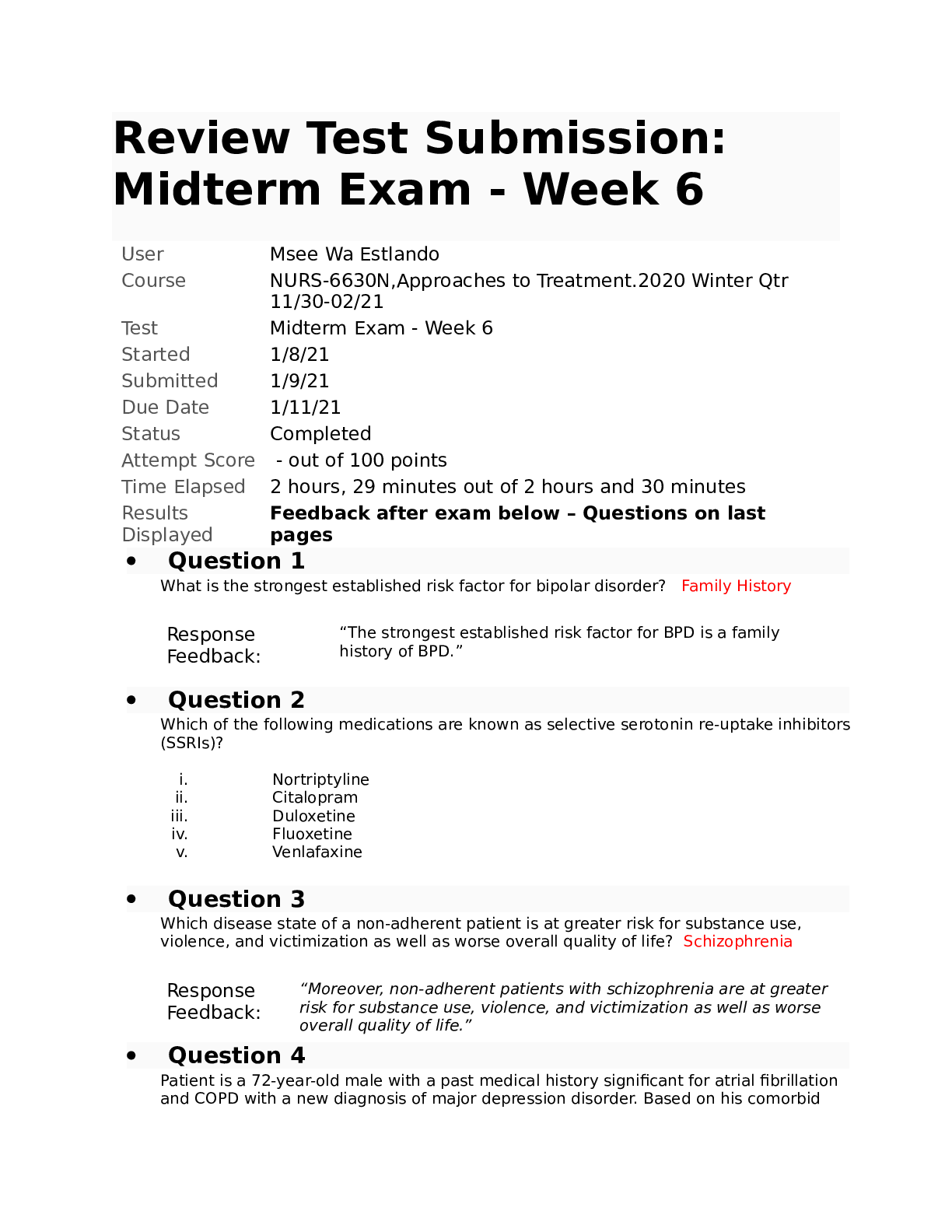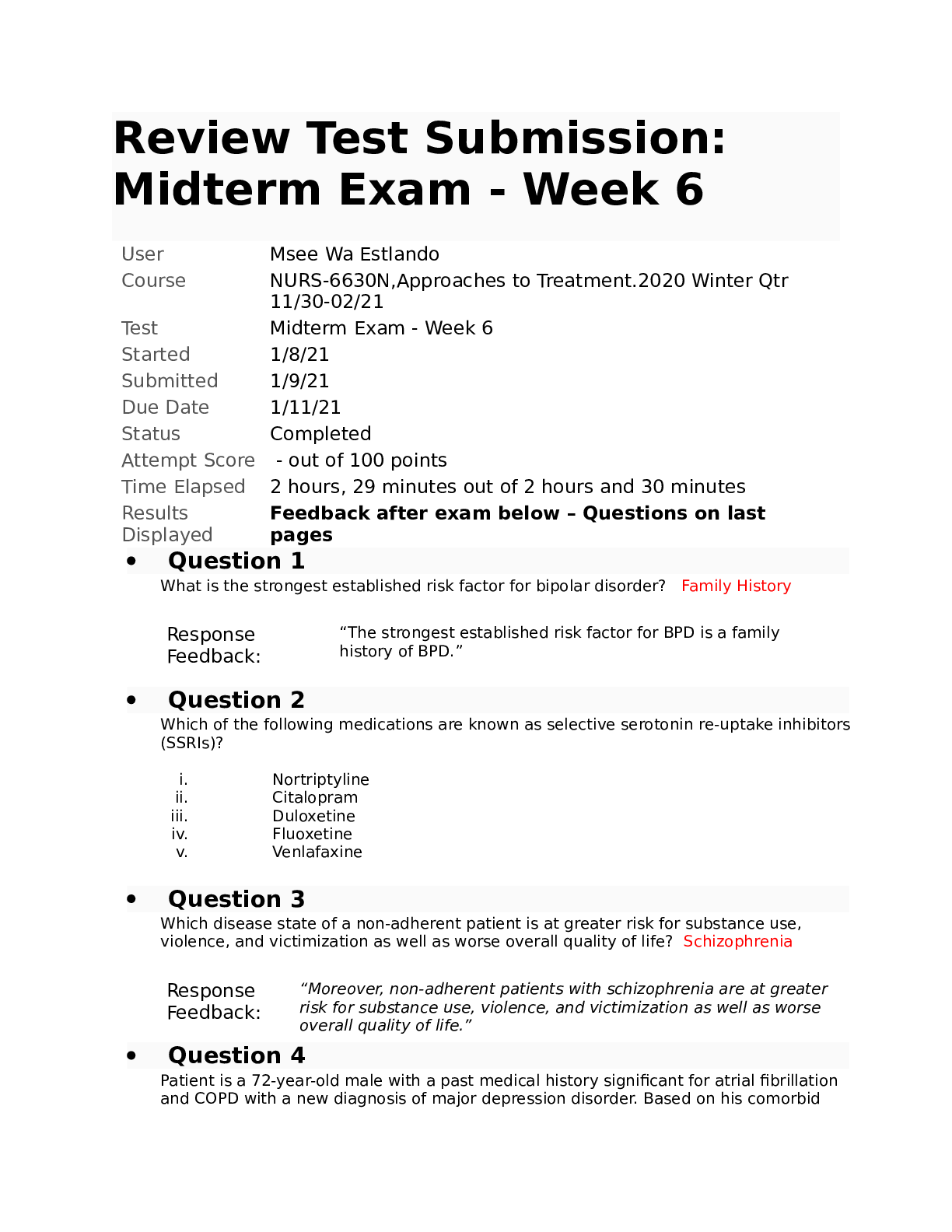Question 1
What is the strongest established risk factor for bipolar disorder? Family History
Response
Feedback:
“The strongest established risk factor for BPD is a family
history of BPD.”
Question 2
Which of the following medications are known as selective serotonin re-uptake inhibitors
(SSRIs)?
i.
ii.
iii.
iv.
v.
Nortriptyline
Citalopram
Duloxetine
Fluoxetine
Venlafaxine
Question 3
Which disease state of a non-adherent patient is at greater risk for substance use,
violence, and victimization as well as worse overall quality of life? Schizophrenia
Response
“Moreover, non-adherent patients with schizophrenia are at greater
Feedback:
risk for substance use, violence, and victimization as well as worse
overall quality of life.”
Question 4
Patient is a 72-year-old male with a past medical history significant for atrial fibrillation
and COPD with a new diagnosis of major depression disorder. Based on his comorbid
conditions, what antidepressant would you recommend as first-line?
ResponseFeedback:(Options C & D are both TCA antidepressants and, based on the patient’s
age and comorbid conditions, a TCA would likely result in more side
effects, such as increased fall risk due to potential for orthostatic
hypotension and anticholinergic-related side effects. In addition, patient
has a history for cardiac abnormalities due to A. fib diagnosis - TCAs
result in electrocardiographic changes in susceptible individuals,
therefore, would likely avoid. Choice B is used more for ADHD purposes
than as an antidepressant)
Page numbers used: Page 39 for TCA side-effect profile
Question 5
Which of the following is an appropriate strategy for managing treatment-resistant
depression?
Use both SSRI and SNRI
Question 6
Which of the following medications is best to AVOID in maintenance treatment of bipolar
disorder and why?
Response
“As noted previously, antidepressants may contribute to an
Feedback:
increase in mood episode frequency.”
Question 7
With second-generation antipsychotics, what is the main side effect that requires
frequent monitoring?
Response
table 7-6 & page 80, table 7-7; Page 78: “However, attention over the
Feedback:
past decade has focused on effect of second-generation antipsychotics
on glucose metabolism and lipids and associated metabolic syndrome.”
Question 8
Which amino acid is involved in the synthesis of both norepinephrine and dopamine?
Question 9
An 81-year-old male comes to your clinic today complaining of dry mouth, blurred vision,
and constipation. He has a past medical history significant for hypertension, heart failure,
and depression. Of the following medications, which one is likely contributing to these
side effects?
Response
Only TCA is listed with most anticholinergic effects; Page 39 for TCA
Feedback:
side effect profile: “dry mouth, blurred vision, constipation, urinary
hesitancy, tachycardia, memory difficulties, and ejaculatory difficulties”
Question 10
Which medication has been studied and recommended in patients with a social anxiety
Read More


